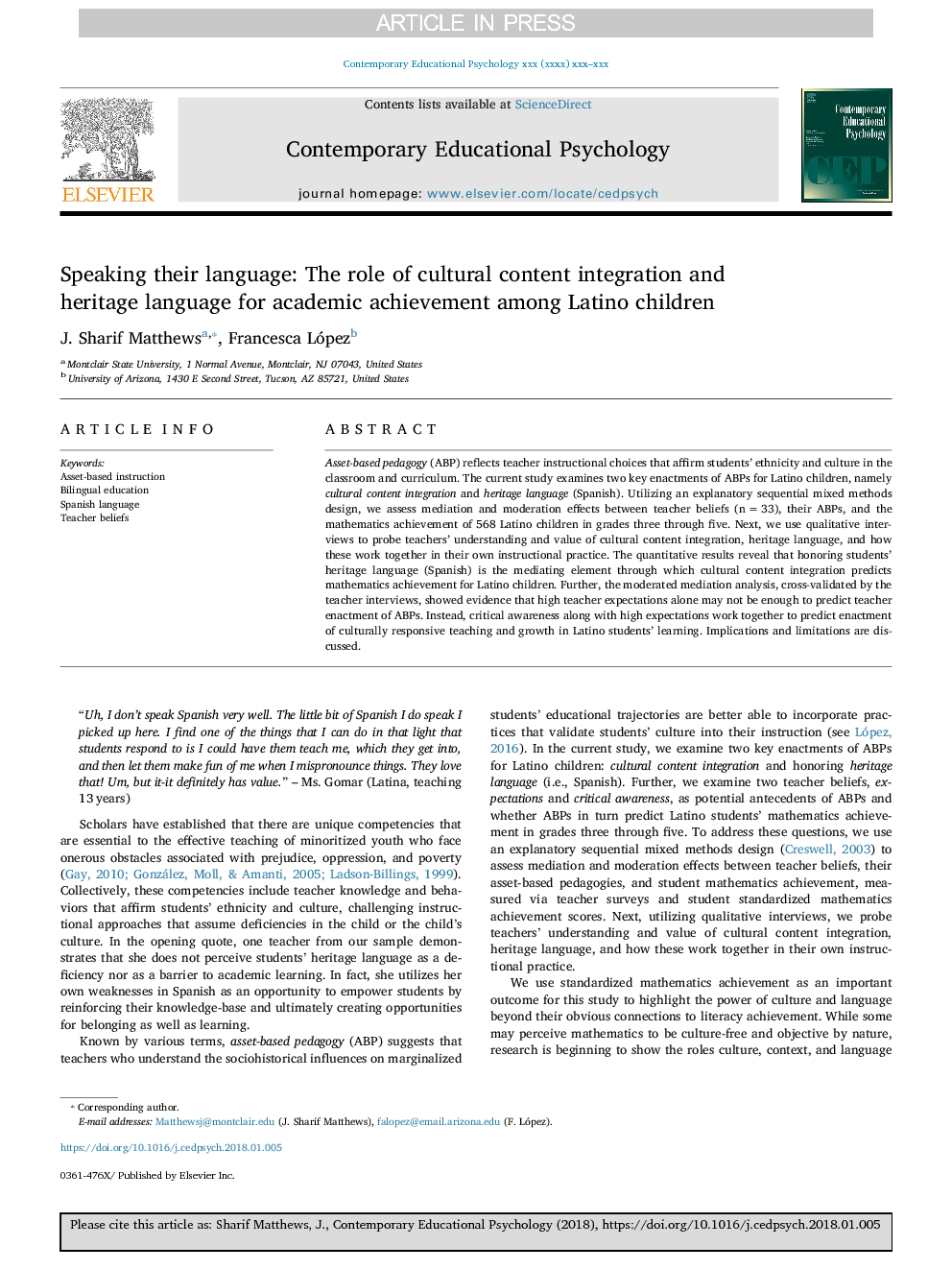ترجمه فارسی عنوان مقاله
صحبت کردن با زبان آنها: نقش یکپارچه سازی محتوای فرهنگی و زبان میراثی برای موفقیت تحصیلی در میان کودکان لاتین
عنوان انگلیسی
Speaking their language: The role of cultural content integration and heritage language for academic achievement among Latino children
| کد مقاله | سال انتشار | تعداد صفحات مقاله انگلیسی |
|---|---|---|
| 155593 | 2018 | 15 صفحه PDF |
منبع

Publisher : Elsevier - Science Direct (الزویر - ساینس دایرکت)
Journal : Contemporary Educational Psychology, Available online 31 January 2018
ترجمه کلمات کلیدی
آموزش مبتنی بر دارایی، آموزش دو زبانه، زبان اسپانیایی، باورهای معلم،
کلمات کلیدی انگلیسی
Asset-based instruction; Bilingual education; Spanish language; Teacher beliefs;

